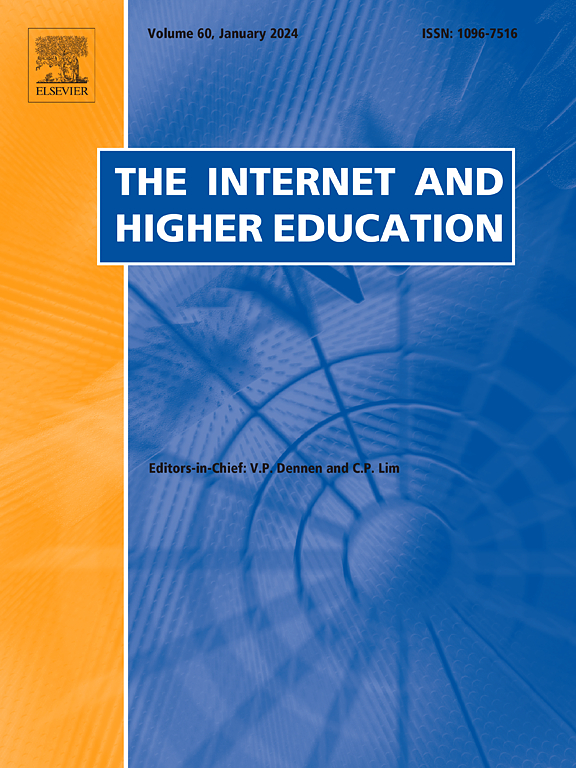虚拟回避:研究STEM学生对在线课程的低兴趣
IF 6.8
1区 教育学
Q1 EDUCATION & EDUCATIONAL RESEARCH
引用次数: 0
摘要
在线教育越来越受欢迎,然而与非STEM课程相比,科学、技术、工程和数学(STEM)的在线课程的学生满意度较低,流失率较高。本研究探讨了STEM和非STEM学生对在线课程的看法差异,以及这些看法如何影响他们未来参加在线课程的意愿。1245名学生来自不同的专业,其中44%的学生主修STEM。与非STEM专业的学生相比,STEM专业的学生认为在线课程的表现较差,不太愉快,灵活性较差,但需要更多的努力。这些观点解释了报名参加在线课程意愿差异的74%。还研究了STEM子类别之间的差异,以提供学生在线课程体验的细微图景。研究结果确定了在线STEM课程的战略改进,目标是基于学习的表现、课程模式的灵活性和学生的享受。本文章由计算机程序翻译,如有差异,请以英文原文为准。
Virtual avoidance: Examining STEM students' lower interest in online courses
Online education is growing in popularity, yet online courses in science, technology, engineering, and mathematics (STEM) experience lower student satisfaction and higher attrition compared to non-STEM courses. This study explores differences in online course perceptions between STEM and non-STEM students and how these perceptions influence their intentions to enroll in future online courses. A sample of 1245 students was recruited from a diverse range of majors, with 44 % of students majoring in STEM. Relative to non-STEM majors, STEM students felt that online classes offer lower performance outcomes, are less enjoyable, and offer less flexibility while requiring more effort. These perceptions explain 74 % of the variance in intentions to enroll in online courses. Differences among STEM sub-categories were also examined to provide a nuanced picture of students' experiences in online courses. The findings identify strategic improvements for online STEM courses by targeting learning-based performance, flexibility in course modality, and students' enjoyment.
求助全文
通过发布文献求助,成功后即可免费获取论文全文。
去求助
来源期刊

Internet and Higher Education
EDUCATION & EDUCATIONAL RESEARCH-
CiteScore
19.30
自引率
4.70%
发文量
30
审稿时长
40 days
期刊介绍:
The Internet and Higher Education is a quarterly peer-reviewed journal focused on contemporary issues and future trends in online learning, teaching, and administration within post-secondary education. It welcomes contributions from diverse academic disciplines worldwide and provides a platform for theory papers, research studies, critical essays, editorials, reviews, case studies, and social commentary.
 求助内容:
求助内容: 应助结果提醒方式:
应助结果提醒方式:


